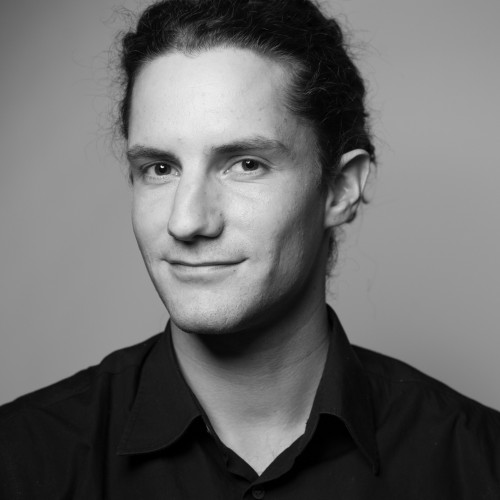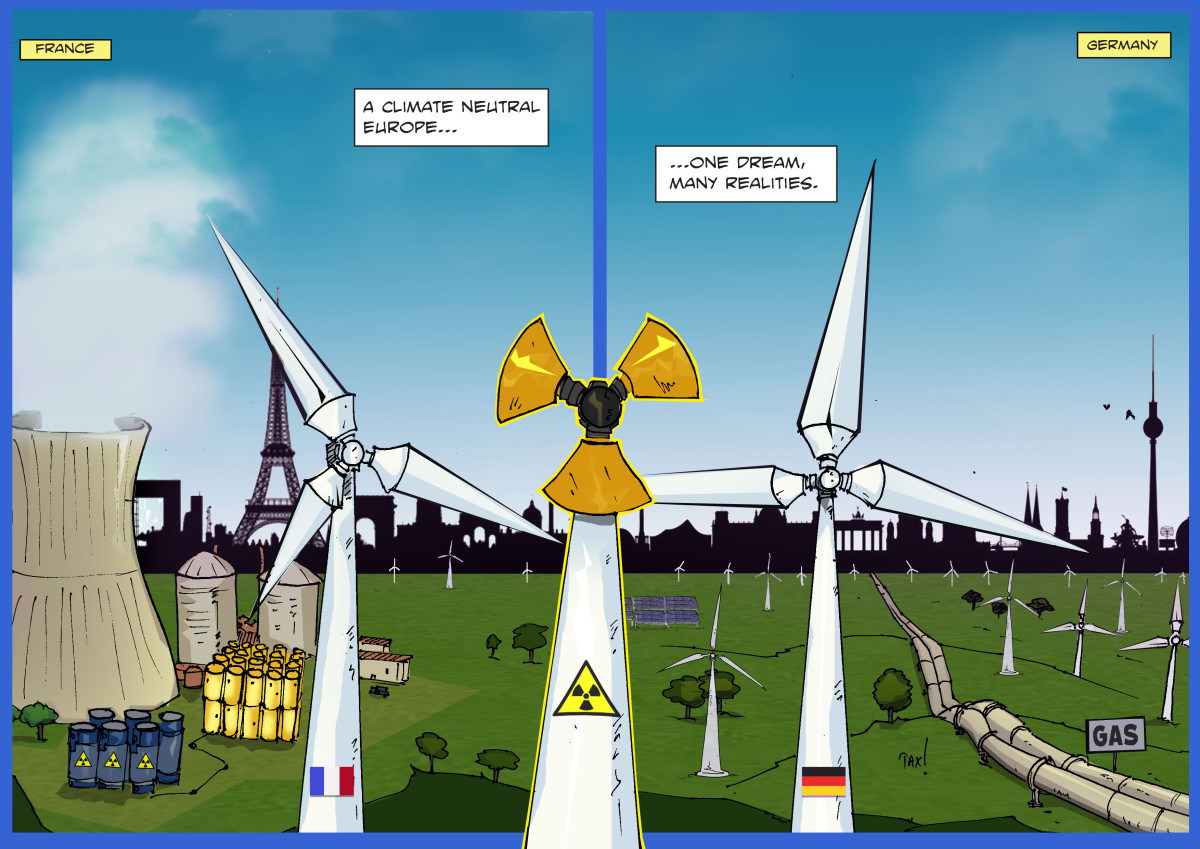Nuclear, gas, renewables: What will power the EU's 'Franco-German engine' in the future?
***Please note: This blog entry kicks off publication of a comprehensive dossier on Franco-German collaboration on energy and climate that will be released over the course of the coming weeks***
Europe has set course to change profoundly the way the continent lights up its cities, produces its goods, warms its homes, and powers its vehicles. But in spite of the EU’s ambitious goals for a sustainable transformation, the configuration of one particularly important piece of machinery has become increasingly uncertain: the proverbial 'Franco-German engine.'
Close coordination of its two largest economies on key matters have made their partnership the symbolic motor of European integration since the project’s early days as a community for coal and steel (ECSC) as well as nuclear power (Euratom) in the 1950s. More recently, the pair’s coordinated approach has helped the EU a great deal to formulate its ambitions to become the leading region for climate action over at least the past decade.
One year ahead of the next EU elections in 2024, at a time when mounting pressure to reduce emissions and great challenges presented by Russia’s war on Ukraine increasingly beg for resolute action, the engine unmistakably has begun to sputter over questions such as the future of nuclear power, the role of gas supply or the use of e-fuels. The disputes about critical strategic areas regarding climate and energy policy not only have shed light on high-level dissent between Berlin and Paris. They also pose threaten to drive a wedge between the two core EU members, who together account for almost 45 percent of the bloc’s GDP and well over one third of its energy consumption. The decisions taken together – or in separation – at this pivotal point therefore may determine how close Europe can come to its target of becoming climate neutral within only about 25 years’ time.
In a Franco-German journalist collaboration project, Clean Energy Wire has set out to explore the state of this European key partnership regarding climate and energy policy – and what it means for the plans of the EU as a whole.
Based on CLEW’s extensive coverage of the ups and downs in Germany’s energy transition, we want to shed light on how well it chimes with developments across the Rhine River. Loud arguments often drown out more quiet but promising initiatives for teamwork and make it more difficult to see where researchers, businesses, and policymakers in both countries share a common vision for combining effective climate action with economic stability.
Far from being led by mere wishful thinking, many observers genuinely believe that a key for the success of Europe’s climate neutrality ambitions lies in a shared bilateral strategy of Germany and France.
With a dossier full of perspectives and facts from both countries that is rolled out over the course of the next weeks, CLEW aims to assist fellow journalists from France, Germany and the rest of the world to cut through the noise of the constant dispute that has come to dominate headlines about the Franco-German engine. While the differences regarding nuclear power are in fact fundamental, they only affect one part of a much broader effort needed to kick off a comprehensive transformation of the way Europe produces and consumes energy.
We examine underlying differences and similarities regarding strategic concepts like energy sovereignty and sustainable transformation, look into the implications and technicalities of the nuclear power divide at the heart of the EU and investigate the prospects of a better coordinated industrial policy that can deliver growth and jobs in line with the Green Deal.
A striking observation made in the preparation of this project has been the eagerness by many interview partners to speak out on a crucial subject on which policymakers for years successfully kicked the can down the road. Far from being led by mere wishful thinking, many observers genuinely believe that a key for the success of Europe’s climate neutrality ambitions lies in a shared bilateral strategy of Germany and France.
This is coupled with a sense of uneasiness that the vast potential of a more integrated climate and energy policy of two of Europe’s leading powers ultimately is squandered on grounds of national convictions, competition and simply short-sightedness in day-to-day political life. Journalists in both countries and beyond face the task of fostering a better understanding of what drives each side, what they expect from and dislike about each other and where their interests align rather than clash. We hope that our dossier takes a small step in this direction - and that it serves as a door opener to anyone ready to work on the next one.



